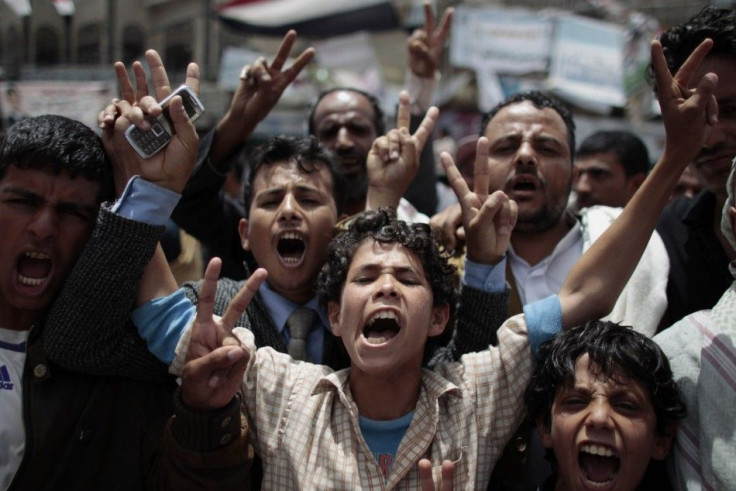Anti-Saleh Protestors Shot Down in Yemen

Protestors in Yemen's capital of Sanaa were again met with bullets over the weekend, as government forces opened fire on the demonstrations against President Ali Abdullah Saleh's regime.
At least 23 people were killed on Monday, according to an Associate Press report, bringing the two-day total to 50.
The pro-government forces placed snipers on rooftops, who shot down at the protestors. State officials said that some demonstrators were armed with sticks and were attacking a the headquarters of the Presidential Guard.
Yet, other reports say that nearly everyone killed were in the center of the city, about five kilometers away from the police building. A child and three soldiers who defected were reportedly slain, as well as two others who died when government forces fired mortars into the city.
Additionally, one person was killed and 15 injured in the southern city of Taiz on Monday during a similar demonstration.
Protests against Saleh, who has been in power for 33 years, started in Yemen in February. Tens of thousands of people have continued to rally in Sanaa for Saleh's resignation, a new constitution and a dissolution of parliament.
Saleh has been slow to negotiate, but last week, he attempted to make a deal that would see him leave office in exchange for immunity from prosecution. As part of the deal, Vice President Abd Rabo Mansou Hadi would assume power within a month.
The United Nations Human Rights Council again condemned the Yemeni government, urging Saleh to find a peaceful resolution to the situation.
Saleh still has a number of supporters in Yemen, but many of his allies have joined the anti-government movement. During his rule, Saleh often used internal conflict as a means to secure power, but rival groups -- such as Islamic militants and Socialist rebels -- are united in their displeasure with the President.
According to reports, Saleh remains in Saudi Arabia.
© Copyright IBTimes 2024. All rights reserved.











